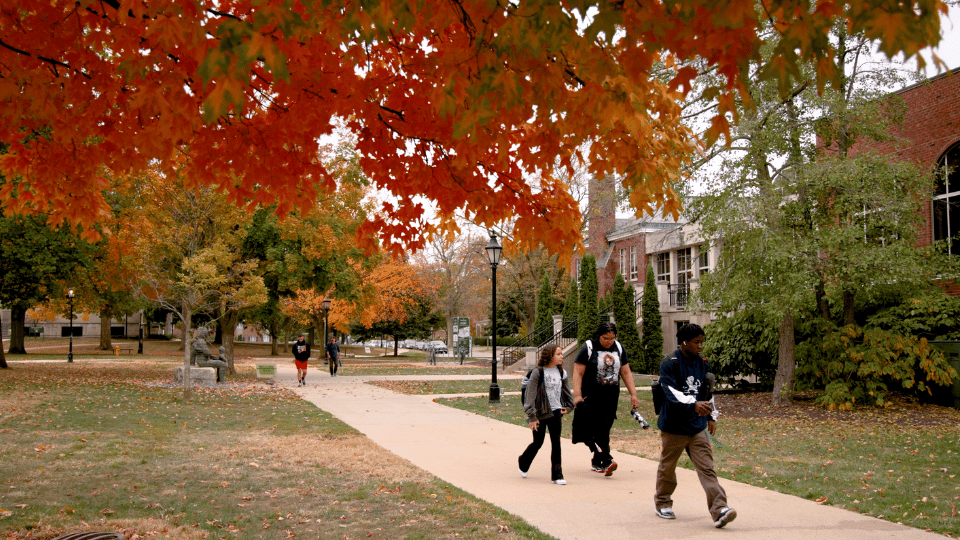
BLOOMINGTON, Ill. — Illinois Wesleyan University was awarded a grant to support suicide prevention and mental health on campus.
The Substance Abuse and Mental Health Services Administration (SAMHSA) allocated $100,000 per year for three years to IWU, with the possibility of renewal for the building of suicide prevention and mental health resources on campus.
Through the grant, IWU is launching a project called Titan HEART (helping everyone achieve resilience together) aiming to raise awareness to suicide prevention and support resources. Illinois Wesleyan will partner with McLean County Center for Human Services and Carle BroMenn Medical Center. Rather than going straight to the emergency room for a mental health crisis, students can be met on campus by a member of McLean County’s mental health crisis team who will provide on-site counseling and evaluation.
Vice President for Student Affairs Karla Carney-Hall said the ultimate goal of the Titan HEART project is to build infrastructure capacity around suicide prevention and normalize campus support for mental health through visibility of resources with an emphasis on an outreach to specific groups of students who may be at higher risk, such as students who are first generation, BIPOC or LGBTQ+.
Carney-Hall said today’s students are facing “stressors from social media, an overload of news about complex issues related to hopelessness, a sense of isolation and challenges around resilience.” She added that academic success, social connectedness and identity development are challenges students face more today than they have in the past.
Since the COVID pandemic, Director of Counseling and Consultation Services Jojo Mitchell said counselors noticed a significant increase in the number of students presenting for mental health services.
“Research shows how college students' mental health has changed. Nationally, we see increasing rates of psychiatric disorders throughout the past 10 years, with significant increases occurring when the pandemic started,” Mitchell said.
Carney-Hall is encouraged to see increased attention on the mental health challenges that students face, resulting in shrinking stigmas and growing resources.
“The SAMHSA grant allows us to support student success by expanding direct service, training faculty and staff and educating students about mental health and suicide prevention strategies, especially for our most at-risk populations,” said Carney-Hall.
Illinois Wesleyan has always been committed to supporting students with mental health needs, Carney-Hall said, “while also recognizing the very real human and financial resource limits.”
She recognized gaps in service that the grant would help address, such as adding a part-time psychiatric nurse on campus to assist students with complex mental health needs. Resources like The Suicide and Crisis Lifeline (988) will be more prominent on campus, added to the back of student ID cards and posted on blue phone boxes.
The grant will also fund consultation and training through The JED Foundation, a nonprofit that protects emotional health and prevents suicide for teens and young adults. With help from The Jed Foundation, Illinois Wesleyan will develop a strategic plan to improve suicide prevention and offer additional mental health resources and training, especially for peer to peer support.
“We know that our faculty and staff support students every day who are struggling with mental health challenges,” said Carney-Hall. “This grant will help expand their capacity through training to recognize and support students who are struggling. Just like faculty and staff work with students, we also know that students are supporting one another and can use some additional tools for supporting their friends.”